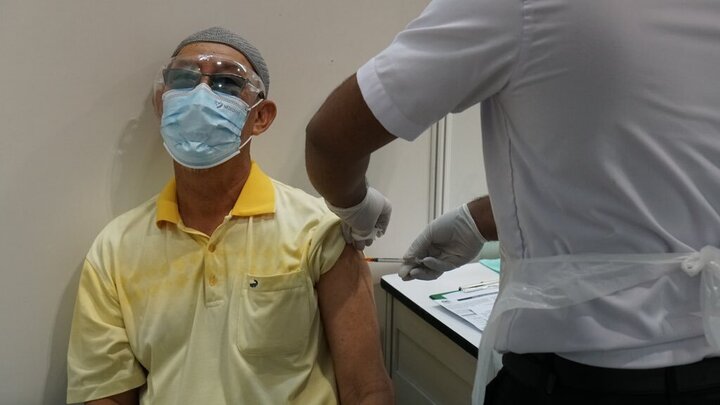PUTRAJAYA, Sept 24 — Malaysia will be giving third Covid-19 vaccine doses to people with weakened immune systems and the elderly with serious medical conditions, Khairy Jamaluddin said today.
The health minister said a third dose can increase the level of immunity among individuals who are highly exposed to Covid-19 infection, in which a two-dose regime does not produce adequate immune response towards the virus.
“The priority for this third dose will be on groups that are at high risk such as frontline health workers, the immunocompromised, elderly with comorbidities, and individuals who live or work at long-term care facilities,” Khairy told reporters in Putrajaya today.
Khairy said a panel of medical and health experts are currently developing guidelines for the implementation of the third dose that will be presented at the next Special Committee on Ensuring Access to Covid-19 Vaccine Supply (JKJAV) meeting.
He added that a booster shot, on the other hand, will be given to all individuals to boost their immunity levels, amid increasing evidence that suggests the protection offered by Covid-19 vaccines wanes over time.
The United States Food and Drug Administration (FDA) recently authorised the use of a single booster dose of the Pfizer-BioNTech Covid-19 vaccine to certain populations, including those aged 65 years and older, after previously approving a third dose of either Pfizer or Moderna for certain immunocompromised individuals — specifically solid organ transplant recipients or those diagnosed with conditions with similar levels of immunocompromise.
US Centers for Disease Control and Protection (CDC) director Dr Rochelle Walensky earlier today endorsed booster shots for those aged 65 and older, nursing home residents, and those aged 50 to 64 with underlying health conditions. She also recommended boosters for health care workers aged 18 to 64 and other workers in that age group if their job puts them at increased risk of exposure to the coronavirus.
“We take note that Pfizer’s submission is for a booster shot. So for a third dose, we will make a decision based on the recommendations submitted to JKJAV,” Khairy said.
Khairy maintained that all three Covid-19 vaccines — Pfizer, AstraZeneca-Oxford, and Sinovac — have a high level of efficacy in preventing serious illness that require intensive care and deaths.
“Yes, we take note that when all the figures are put together, the highest (ICU and death cases) is Sinovac. We need to have a more in-depth study on this to determine if the higher figure is due to the vaccine type or other factors such as their medical history or the time these patients were infected — whether it was at a time when variants of concern were transmitting in high volumes,” Khairy said in reference to a recently released RECoVaM study on vaccine efficacy in Malaysia.
The Institute of Clinical Research’s (ICR) Real-World Evaluation of Covid-19 Vaccines Under the Malaysia National Covid-19 Immunisation Program (RECoVaM) study found that complete inoculation with Covid-19 vaccines is 83 per cent effective against admission into intensive care and can prevent death by 88 per cent.
By vaccine brand, Dr Kalaiarasu said AstraZeneca’s vaccine was the most effective at reducing both ICU admission risk and deaths among breakthrough Covid-19 cases by 96 per cent.
Pfizer-BioNTech’s vaccine is 92 per cent effective at reducing ICU admissions and 93 per cent effective at preventing deaths among fully vaccinated Covid-19 patients. The Sinovac vaccine is 77 per cent and 84 per cent effective at curbing ICU admissions and deaths, respectively.








